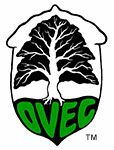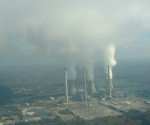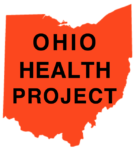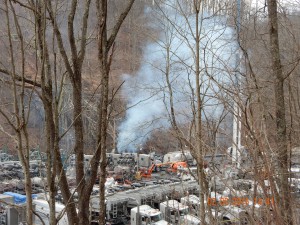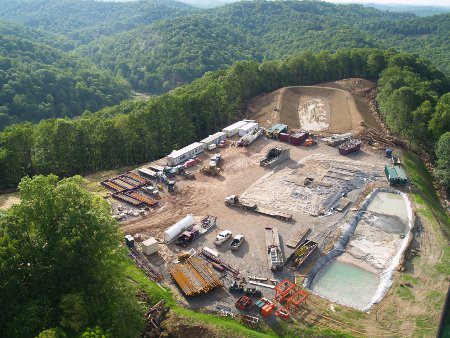
Frack pad holding ponds under construction. Photo courtesy WV Host Farms
There is a new economic “bubble” on our horizon, as outlined in this DeSmog Blog post.
We at OVEC are highly concerned about the implications of this for our region. Could it be that a lot of the new fracked-gas-related infrastructure being built in our state and region—already resulting in significant deforestation and water pollution, air pollution, dangerous heavy truck traffic, decreased property values —could end up being abandoned when the bubble bursts?
Here’s what a couple of our key volunteers have to say:
New OVEC volunteer, Dana Adkins, commented on this recently, saying:
The comparison to the subprime lending and the housing market bubble is a comparison I have been making for a while. It is nice to see that comparison is catching on.
Long-time OVEC volunteer, Mary Wildfire, has this to say:
So we’re dealing with what is essentially a criminal enterprise. Technically not breaking laws, perhaps—but by going ahead with this massive build out of infrastructure, the industry is not only guaranteeing catastrophic climate change, but also blocking any chance of a transition.
I mean the opportunity cost, when these last fossil fuel and financial resources are being poured down a toxic hole instead of a build out of renewable energy infrastructure and the other things we’d need to preserve a modern way of life through the coming dark times—an agricultural revolution, major investment in insulating buildings, restructuring our economy to largely eliminate commuting—we should be getting on with all that ,and instead we’re collectively pretending it’s 1952, and a lot of the reason is the power of the oil and gas industries, their owners like the Koch brothers, and the think tanks they’ve set up.
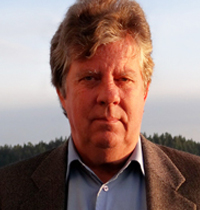 Mary also noted that there has been some important work on this topic done by J. David Hughes (right), an earth scientist who has studied the energy resources of Canada for nearly four decades, including 32 years with the Geological Survey of Canada as a scientist and research manager. He developed the National Coal Inventory to determine the availability and environmental constraints associated with Canada’s coal resources. As Team Leader for Unconventional Gas on the Canadian Gas Potential Committee, he coordinated the publication of a comprehensive assessment of Canada’s unconventional natural gas potential. A recent publication by Mr. Hughes is available here.
Mary also noted that there has been some important work on this topic done by J. David Hughes (right), an earth scientist who has studied the energy resources of Canada for nearly four decades, including 32 years with the Geological Survey of Canada as a scientist and research manager. He developed the National Coal Inventory to determine the availability and environmental constraints associated with Canada’s coal resources. As Team Leader for Unconventional Gas on the Canadian Gas Potential Committee, he coordinated the publication of a comprehensive assessment of Canada’s unconventional natural gas potential. A recent publication by Mr. Hughes is available here.
If you would when we come across articles similar to the DeSmog Blog post that prompted these musings, please let us know you want to join our “comment list-serve” by contacting info@ohvec.org.

